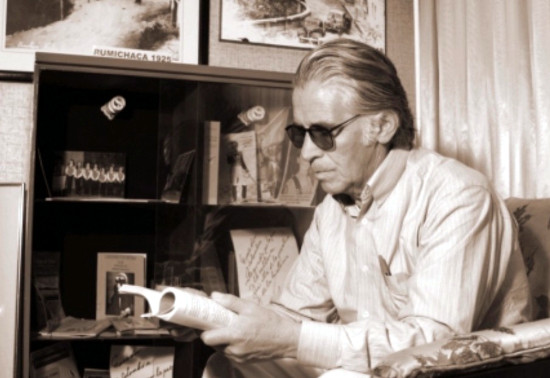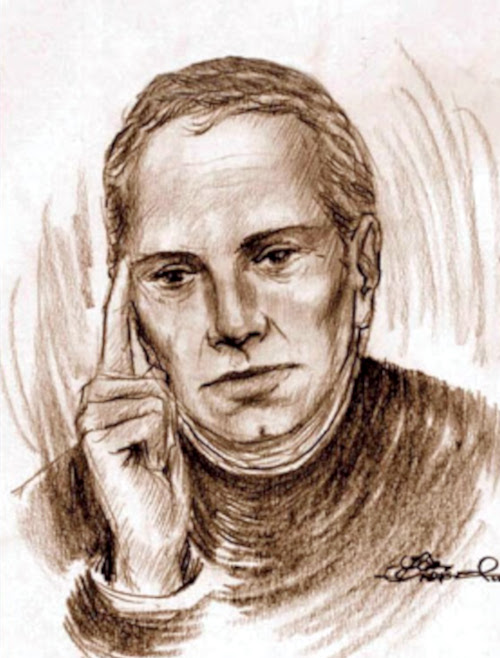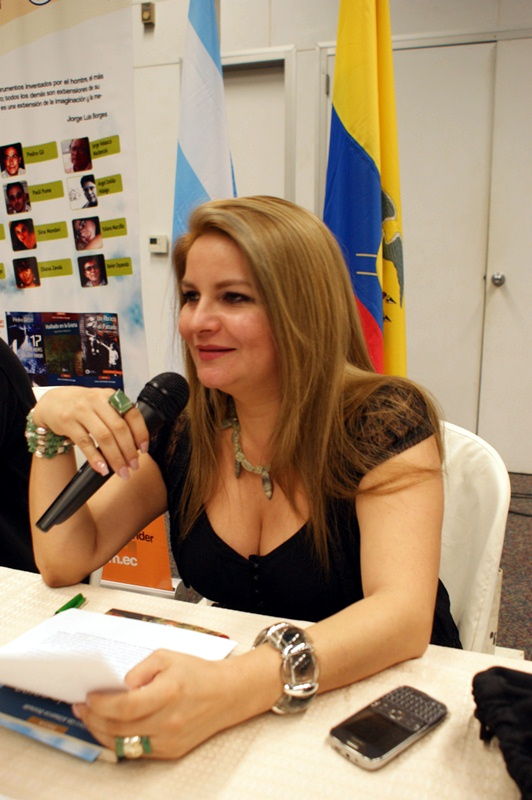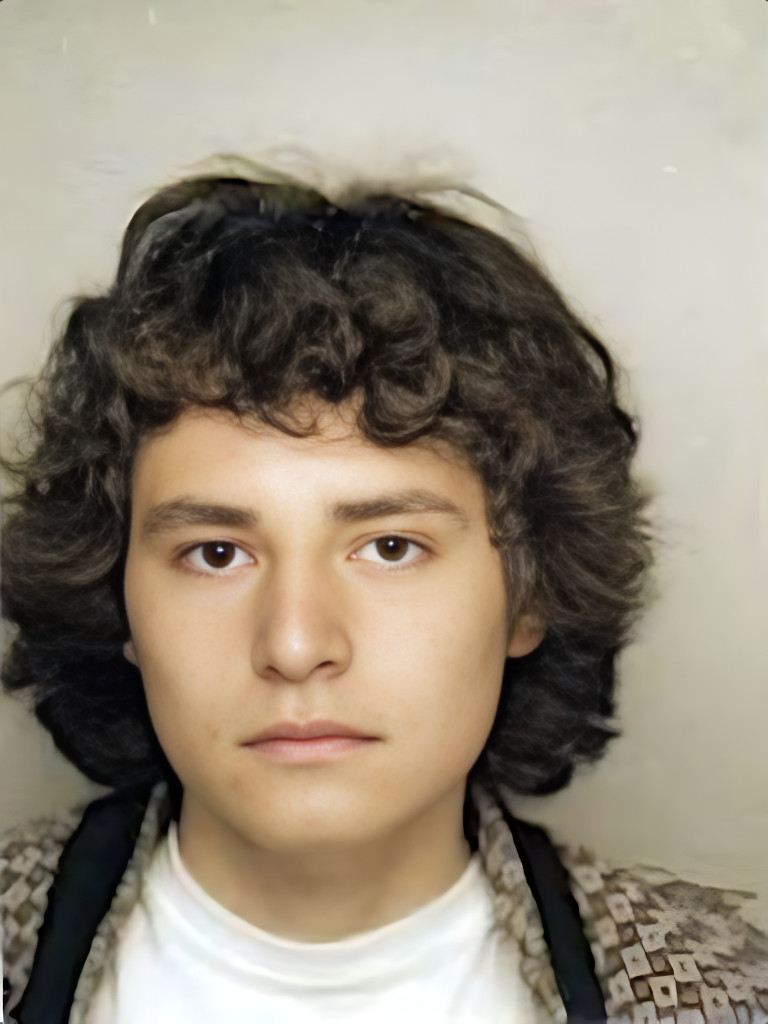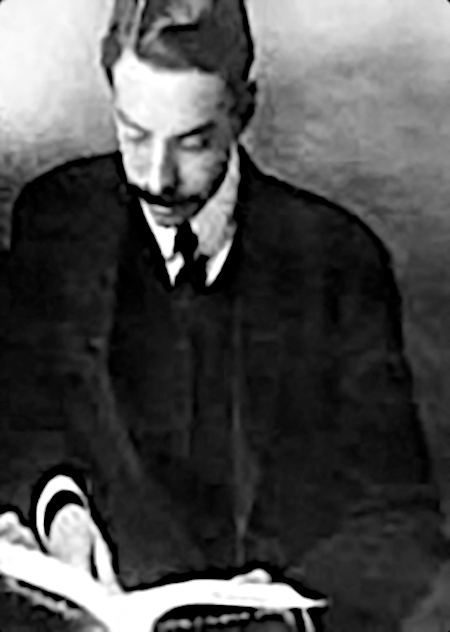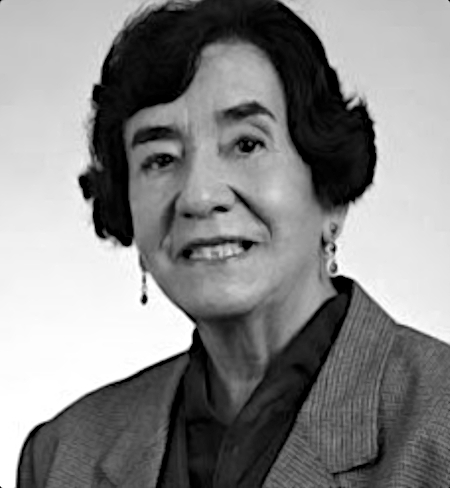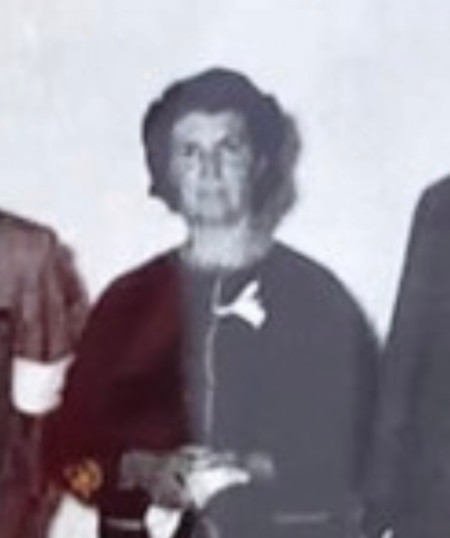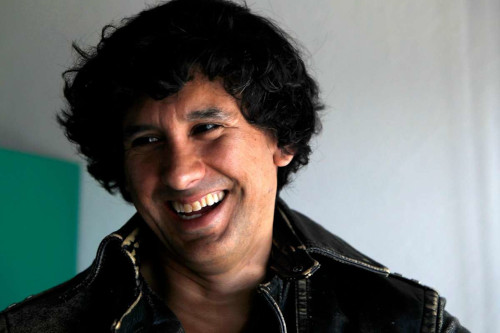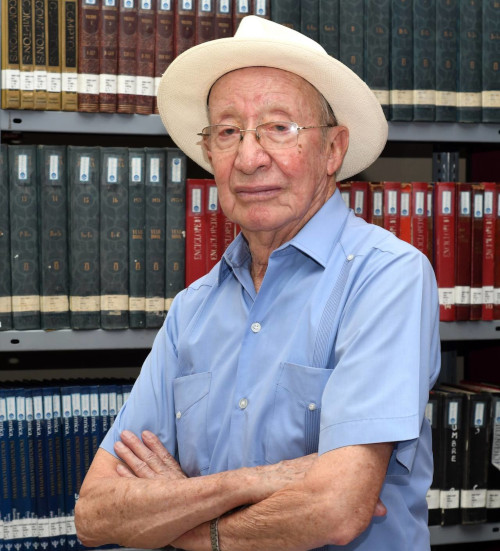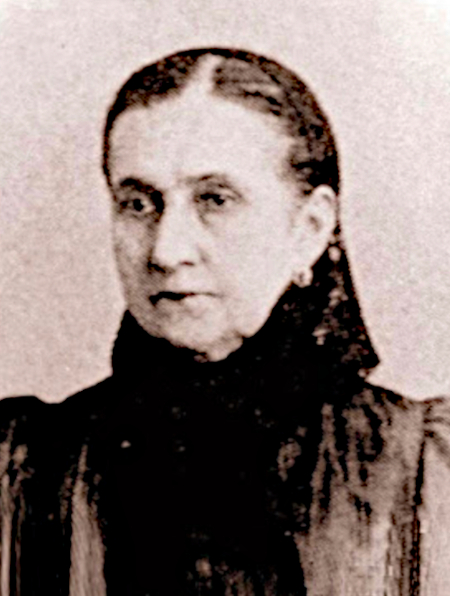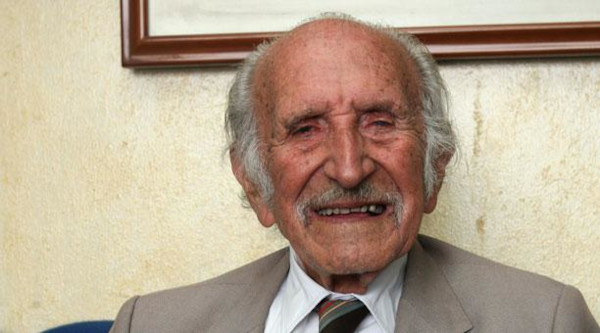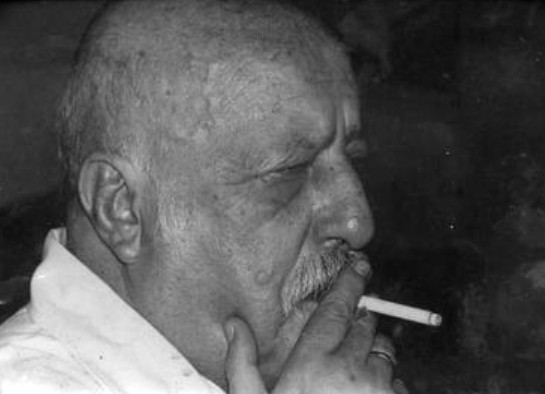Vicente Amador Flor Cedeño (Portoviejo, July 19, 1903 – December 3, 1975) was an Ecuadorian poet known for his poems about his native city Portoviejo. The central park of Portoviejo has borne his name since October 30, 1981, and many educational institutions in Ecuador bear his name. In 1983 a bust statue of Flor was placed in the central park of Portoviejo.
Continue reading “Vicente Amador Flor”Author: richard
Luis Enrique Fierro
Luis Enrique Fierro (Tulcán, Carchi Province, November 14, 1936) is an Ecuadorian physician, writer and poet. His literary portfolio includes poetry collections like “Baratillo de esperanza,” “Metástasis,” “Arrecife,” “De Muelles y Caminos,” and “Antología Poética.” In the medical field, Fierro served as the Provincial Director of Health from 1965 to 1972 and later became the director of the pediatrics department at the Luis Gabriel Dávila Hospital. His cultural contributions extended to leadership roles as well, where he served three terms as the president of the Carchi branch of the House of Ecuadorian Culture during the periods of 1983-1987, 1992-1997, and 2001-2005. Ecuador’s president honored Fierro with the Eugenio Espejo Award in Culture in 2005.
Continue reading “Luis Enrique Fierro”Humberto Fierro
Humberto Fierro Jarrín (Quito, June 17, 1890 – Quito, August 23, 1929) was an Ecuadorian poet of modernismo, a literary movement that took place primarily during the end of the nineteenth and early twentieth-century in the Spanish-speaking world. He was close friends with Arturo Borja, Ernesto Noboa, and other tormented poets of the early twentieth century who committed suicide and were thus dubbed the “Decapitated Generation.” This group was heavily influenced by Rubén Darío’s modernismo movement as well as 19th-century French romantic poetry. Fierro’s best known poems can be found in his poetry collections, “El laud en el valle,” published in 1919, and “La Velada Palatina,” published posthumously in 1949. He spent almost all of his working life as a clerk in a Public Ministry Office. He died at the age of 39 in 1929 from a mountain fall, which some believe was suicide.
Continue reading “Humberto Fierro”Jacinto de Evia
Jacinto de Evia (Guayaquil, circa 1629 – 17??) was a priest and poet from the Spanish colonial period in Guayaquil, in what is now Ecuador. He is considered the first erotic poet of Ecuadorian literature because of poems he wrote in his younger years which he published in a book entitled, “Ramillete de Varias Flores Poéticas“ (Spain, 1675). The book also contains poems by his mentor Antonio de Bastidas and Hernando Domínguez Camargo. Some year prior to 1650, he traveled to Quito to study at the seminary school of San Luis, of the Society of Jesus, where he became a pupil of the great poet Antonio de Bastidas.
Continue reading “Jacinto de Evia”Siomara España
Siomara España Muñoz (Paján, January 4, 1976) is an Ecuadorian poet, essayist, professor and literary critic. She has been the director of the literature branch of the Guayas chapter of the House of Ecuadorian Culture, a high school teacher, a literature professor at the University of Guayaquil, the director of the School of Literature in the Faculty of Philosophy of the University of Guayaquil, the director of Research and Postgraduate Studies at the University of the Arts, and a professor of literature at the University of the Arts.
Continue reading “Siomara España”Oswaldo Calisto Rivera
Oswaldo Calisto Rivera, known by his pen name Cachibache, often spelled Cachivache (Quito, September 22, 1979 – October 10, 2000) was an Ecuadorian poet and painter who died of suicide at the age of 21. In 2001 Cachibache’s only book of poems “Rojo encanto de la marmota” was published posthumously by the House of Ecuadorian Culture in Quito. He also completed a yet unpublished poetic trilogy which consists of: “La cachiva,” “Comible Sr. Lucas Alombrey” and “La falta de pantuflismo.” Cachibache’s poems have been included in several anthologies, such as Memorias del primer festival de poesía joven Hugo Mayo (2005), 13 poetas ecuatorianos nacidos en los 70 (2008), and Premonición a las puertas (2012).
Continue reading “Oswaldo Calisto Rivera”Arturo Borja
Arturo Borja Pérez (Quito, Ecuador, September 15, 1892 – Quito, Ecuador, November 13, 1912) was an Ecuadorian poet associated with the “Generación decapitada” (Decapitated Generation), a group of young poets known for their tragic early deaths. Borja was the first of the group to adopt Modernist styles, drawing influence from French Symbolist poets like Baudelaire and Verlaine, whom he studied while in Paris seeking medical treatment. His poetic output, though limited, includes twenty-eight poems compiled in the posthumous collection La flauta de ónix (1920). Known for themes of melancholy and existential reflection, his work has made a lasting impact on Ecuadorian literature, marking him as a key figure in early 20th-century Ecuadorian poetry.
Continue reading “Arturo Borja”The poets of Elan
The ELAN Group (grupo Elan) emerged as a vibrant literary movement in Cuenca, Ecuador, during the 1940s, representing the neosymbolism or lyrical vanguard movement. They marked a significant departure from previous styles of poetry, aiming to create an authentic and innovative form of Cuenca poetry. Comprised of writers, artists, poets, and journalists born between 1905 and 1920, ELAN shared a sense of unity in their cultural outlook. ELAN’s poetry, characterized by clarity and humanism, continues to exert influence on contemporary literary circles. Within this group, Efraín Jara Idrovo stands out as an exceptional figure known for his remarkable contributions. Their early works and subsequent contributions were documented in various publications, showcasing their dedication to the craft. In 1972, Antonio Lloret Bastidas paid tribute to the lasting impact of the ELAN Group through his publication “Motivos de la Poesía Cuencana” and further honored them with a dedicated volume in his “Antología de la Poesía Cuencana.” The ELAN Group played a pivotal role in shaping the literary landscape of Cuenca and left a lasting impact on the poetry of the region.
Continue reading “The poets of Elan”Fanny Carrión de Fierro
Fanny Carrión de Fierro (1936) is an Ecuadorian poet, literary critic, essayist and university professor. She is a 4-time winner of Ecuador’s Gabriela Mistral National Poetry Award. She has published essays on a variety of topics, including politics, culture, and society. Her poems have also appeared in English-language anthologies such as “These Are Not Sweet Girls: Poetry by Latin American Women” (1994) and “Eye to Eye-Women: Their Words and Worlds” (1997). She has taught at several universities in Ecuador and the United States. She is currently a professor at Ecuador’s Pontifical Catholic University (Quito). She has also been a visiting professor and Fulbright Scholar at Keene State College in New Hampshire, Willamette University in Oregon, and several other universities in Ecuador. Her work has been translated into English.
Family
Fanny Carrión de Fierro’s parents were Luis Enrique Carrión Carvajal and Leonor Acosta from Ibarra, Ecuador. Carrión de Fierro married Gustavo Adolfo Fierro Zevallos (Ph.D. in linguistics). They had four children: Gustavo Adolfo, Patricia Natalia, Luis Alberto and Pablo Fernando.
Education
She received a Doctorate in Literature from the Pontifical Catholic University of Ecuador (Quito, 1981), as well as a Master of Arts degree from the University of California at Berkeley, and a Bachelor’s degree (Licenciatura) in Education from the Central University of Ecuador.
She has been on the board of the Association of College Professors of the Pontifical Catholic University of Ecuador in Quito. She is also on the board on several development non-governmental organizations.
Member of
- “Grupo America” – an Ecuadorian literary group.
- Casa de la Cultura Ecuatoriana [Ecuadorian House of Culture], Literature Section.
Works
Poetry
- En la Voz del Silencio (1980)
- Ten poems translated into English included in the anthology These are not Sweet Girls, Poetry by Latin American Women, edited by Marjorie Agosin (1994)
- Where light was born: A personal anthology of selected poems by Fanny Carrión de Fierro (1999; translated by Sally Cheney Bell)
- Donde nació la Luz: Antología Personal (2000)
- Desde el beso del tiempo and Esta voz, in Poetic Voices without Borders, edited by Robert L. Girón (2005)
- Alfa Amor, Donde Nació la Luz and Geografía del Corazón, in Poetic Voices without Borders 2, edited by Robert L. Girón (2009)
- Ecuador, on erotic attraction, “Hidden Pleasure” in Eye to Eye-Women: Their Words and Worlds, edited by Vanessa Baird, introduction by Anita Desai (1997)
Short stories
- The Golden Ear of Corn and Other Stories, bilingual collection of short stories. Centro de Publicaciones de la Pontificia Universidad Católica del Ecuador, October 2010.
Criticism
- José de la Cuadra: Precursor del realismo mágico hispanoamericano (1993)
- Los Sangurimas, novela precursora de Cien Años de soledad, an essay about the novel “Los Sangurimas” by José de la Cuadra
- Cien Años de Soledad, Historia y Mito de lo Americano, in: Lectura de García Márquez (Doce Estudios), edited by Manuel Corrales Pascual (Quito: Centro de Publicaciones de la Pontifica Universidad Católica de Ecuador, 1975)
Awards
- Gabriela Mistral National Poetry Award (1958, 1961, 1981 and 1985)
- National Poetry Award of Ecuador (1962)
- “Juana de Ibarbuoru” Poetry Prize, Montevideo, Uruguay (1995).
Other writers with the last name Carrión
Fanny León Cordero
Fanny León Cordero (Gualaceo Canton, October 15, 1920) was an Ecuadorian jurist and poet. León was a member of the Association of Contemporary Writers of Ecuador, whose annual poetry contest is named after her. In 1947 León became Ecuador’s first female jurist, she worked as a judge for 31 years.
Continue reading “Fanny León Cordero”Mauro Javier Cárdenas
Mauro Javier Cárdenas is a critically-acclaimed Ecuadorian novelist. He was born and raised in Guayaquil and studied economics at Stanford University. The New York Times called Cárdenas’ debut novel, The Revolutionaries Try Again, “an original, insubordinate novel.” In 2017, the Hay Festival included Cárdenas in Bogotá39, a selection of the best young Latin American novelists working today. Cárdenas has lived in the U.S. for over a decade. Writing about Cárdenas’ latest novel, Aphasia (2020), literary critic Carlos Fonseca wrote: “Mauro Javier Cárdenas has knocked down the novel as we know it, and built a cathedral out of the debris. Aphasia is monumental, funny, potent, and fresh. It marks a new beginning.”
Continue reading “Mauro Javier Cárdenas”Rodrigo Pesántez Rodas
Rodrigo Abelardo Pesántez Rodas (Azogues, July 25, 1937 – Guayaquil, April 2, 2020) was an Ecuadorian writer, poet, literary critic, anthologist, researcher, university professor, and cultural promoter. He’s best known for his essays and for publishing poetry anthologies containing poems by Ecuadorians. He is especially remembered as an exponent and champion of Ecuadorian women writers. His book, “Presencia de la mujer ecuatoriana en la poesía” (1960), is a poetry anthology that contains poems by 67 Ecuadorian women writers. Other books by him include: “Panorama del ensayo ecuatoriano,” “Ocho poetas tanáticas,” “Jorge Carrera Andrade, amistad y anhelos compartidos,” and “Siete poetas del Ecuador.” As a poet, his poetry books include “Viñas de Orfeo,” “De cuerpo entero,”and “Vigilia de mi sombra.” Among the many awards he received are: the José Vasconcelos Award (an international award from Mexico) and the National Cultural Merit Medal from the House of Ecuadorian Culture. For forty years, he taught Ecuadorian Literature at the University of Guayaquil. He was a member of the House of Ecuadorian Culture.
Continue reading “Rodrigo Pesántez Rodas”Rita Lecumberri
Rita Lecumberri Robles (Guayaquil, November, 14, 1831 – Guayaquil, December 23, 1910) was an Ecuadorian writer and educator. She was a published and awarded poet and essayist. She is also noted for her contribution to the education of women in Ecuador. She was director of the Escuela San Alejo in 1880-82 and 1882-95. A school, (El colegio Rita Lecumberri) is named after her as well as an award.
Continue reading “Rita Lecumberri”Nicolás Kingman Riofrío
Nicolás Kingman Riofrío (Loja, November 18, 1918 – Quito, March 19, 2018) was an Ecuadorian writer, journalist and politician
Continue reading “Nicolás Kingman Riofrío”Francisco Tobar García
Francisco Tobar García (Quito, November 3, 1928 – Quito, February 1, 1997) was an Ecuadorian poet, playwright, novelist, essayist, journalist, literary critic, diplomat, and university professor. He earned a Ph.D. in Literature from the Pontifical Catholic University of Ecuador and held teaching positions at universities such as La Plata in Argentina, the Sorbonne in Paris, and Complutense in Madrid. He revitalized Ecuadorian theater with his plays and published several notable works of poetry and fiction, including Pares o nones and Autobiografía admirable de mi tía Eduviges, which critics consider his masterpiece. He also served as a diplomat in Spain, Haiti, and Venezuela.
Continue reading “Francisco Tobar García”